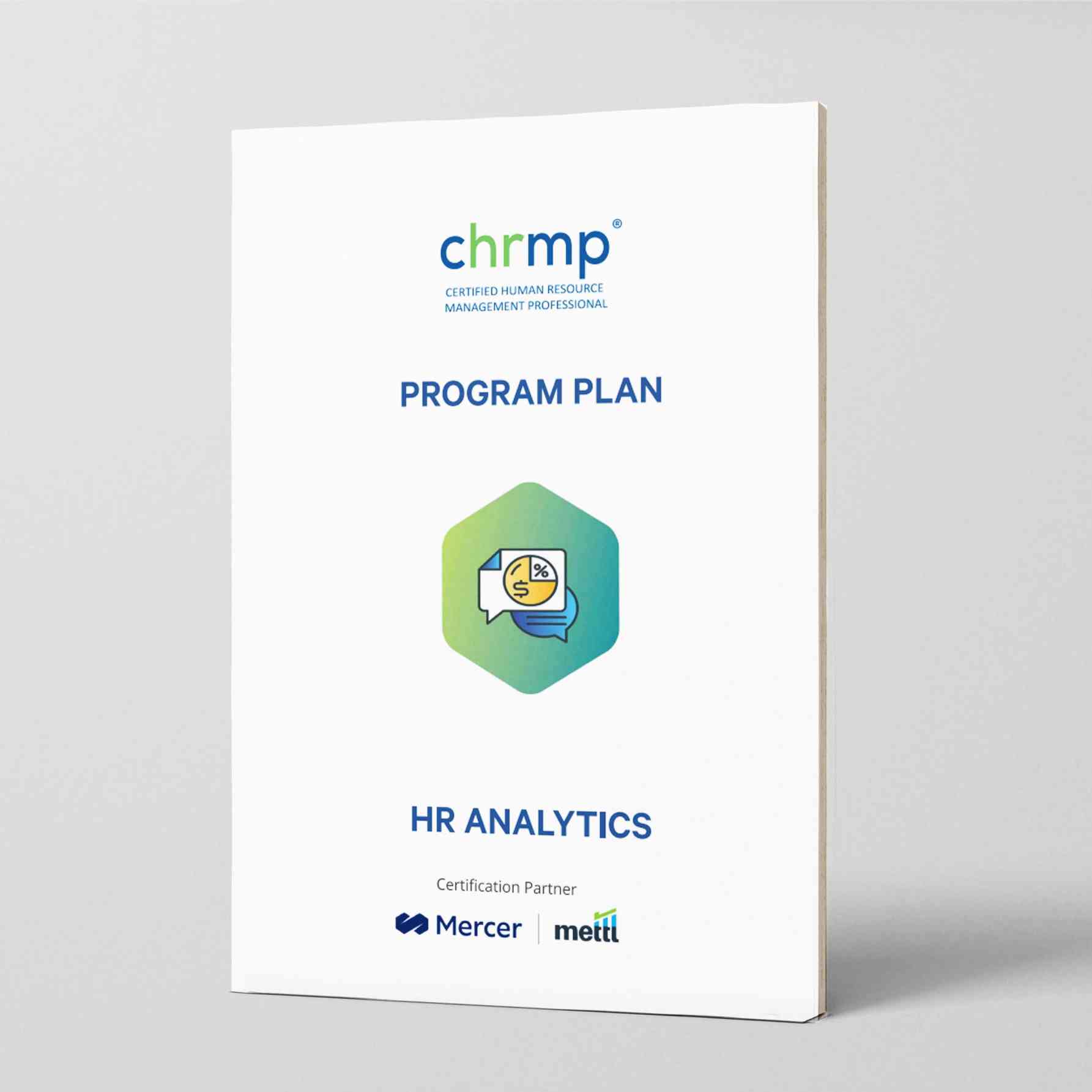

In the present-day business landscape, roles in the field of HR have evolved to become highly strategic and have become vital for the success of organizations.
HR business partners, or HRBPs, are HR professionals who are closely involved with leaders of the organization to develop HR strategies that align with the company’s goals and objectives in order to achieve desired business outcomes.
In this blog, we shall discuss all the roles of an HR business partner, the definition, roles and responsibilities, skills required, salary and much more.
So if you’re a seasoned HR professional looking to expand your career or someone simply exploring the different career paths in the field of HR, this blog is for you.
So without further ado, let’s dive right in!
An HR professional who works with business leaders as a strategic partner and consultant is called an HR business partner or HRBP. These professionals are closely involved in the development of HR strategies that align with organizational goals and objectives and help achieve success in the long run.
An HR business partner possesses the knowledge and a deep understanding of the company and everything related to its products or services, competitors, customer base, etc., and uses it to build and implement HR strategies that support company goals.
HRBPs basically create a bridge between the company and its human resources and help translate the needs of the company into key HR initiatives and strategic plans to ensure that human resources add the level of value required by the organization.
HR business partners work collaboratively on key HR functions like total rewards, training and development, talent acquisition, etc., to ensure HR functions align with the company’s long-term strategy to achieve its goals.
The roles and responsibilities of a Business Partner (HRBP) can vary depending on the organization & its size but generally include the following:
1. Strategic Partnership:
As a strategic partner, the HRBP works closely with business leaders to understand their needs and challenges and align HR strategies with the organization’s objectives.
2. Talent Management:
The HRBP plays a key role in talent management, including talent acquisition, performance management, career development, and succession planning. They work with business leaders to identify key roles and develop talent pipelines to ensure the organization has the right people in the right roles.
3. Organizational Development:
The HRBP helps to build and maintain a high-performance culture by designing and implementing programs that promote employee engagement, diversity and inclusion, and organizational development.
4. Change Management:
The HRBP plays a critical role in managing organizational change, including mergers and acquisitions, reorganizations, and new initiatives. They work with business leaders to develop and execute change management plans that minimize disruption and maximize the benefits of change.
5. Employee Relations:
The HRBP is responsible for managing employee relations issues, including conflict resolution, disciplinary actions, and investigations. They work with business leaders to ensure compliance with labour laws and regulations.
6. Data Analysis:
The HRBP uses data analysis to identify trends and opportunities for improvement in HR programs and initiatives. They use this information to develop and implement data-driven strategies that support the organization’s goals.
To summarise, the HRBP serves as a trusted advisor to business leaders and plays a critical role in driving organizational success by aligning HR strategies with the organization’s objectives and delivering measurable business outcomes.
Being a successful HR Business Partner (HRBP) requires a unique combination of skills, including:
1. Business Acumen:
To effectively partner with business leaders, HRBPs need to have a strong understanding of the organization’s products, services, customers, and competitors. They should be able to speak the language of business and demonstrate how HR strategies and initiatives contribute to the bottom line.
2. Strategic Thinking:
HRBPs must be able to think strategically, taking a long-term view of HR programs and initiatives and aligning them with the organization’s goals. They must be able to p future trends and develop proactive solutions that support the business’s needs.
3. Relationship Management:
HRBPs need to be skilled in building and maintaining relationships with key stakeholders, including business leaders, employees, and other HR professionals. They must be able to listen actively, communicate effectively, and influence decision-making at all levels of the organization.
4. Analytical Skills:
HRBPs need to be able to analyze and interpret data to identify trends, make informed decisions, and measure the impact of HR programs and initiatives. They must be comfortable working with data and using analytics tools to inform their recommendations.
5. Change Management:
As strategic partners to business leaders, HRBPs play a critical role in managing change within the organization. They must be skilled in change management, including developing change management plans, communicating effectively with stakeholders, and managing resistance to change.
In summary, HRBPs must be business-savvy strategic thinkers with strong relationship management, analytical, and change management skills. They are key partners to business leaders and play a critical role in driving organizational success through HR programs and initiatives that align with the organization’s goals.
Several factors determine the salary of an HR Business Partner (HRBP), such as the industry, size of the organization, geographic location, and level of experience.
The average salary for an HR business partner is around $77,000 per year, according to PayScale. This can vary in a range from around $53,000 to over $112,000 per year, depending on the factors mentioned above.
HR business partners with more years of experience and specialized skills or certifications tend to earn higher salaries, generally. In addition, those working in larger organizations or in high-demand industries also earn more.
Thus the inference is that salaries can vary widely depending on the specific requirements and policies of the organization. It is important for job seekers to research the salary range for an HR business partner in their industry and geographic location and negotiate their salary based on their qualifications and years of experience in their specific relevant field.
HR Business Partners (HRBPs) and HR Managers are both roles within the Human Resources (HR) function, but they differ in their focus, scope, and responsibilities.
An HR Manager is generally responsible for managing a specific HR function, such as recruiting, compensation, benefits, or employee relations. They oversee the day-to-day operations of their area of responsibility, develop policies and procedures, and ensure compliance with labour laws and government laws and regulations.
On the other hand, an HR business partner is more of a strategic partner to business leaders and is responsible for aligning HR strategies with the organization’s goals.
They work closely with business leaders and managers to identify key HR issues, develop solutions, and implement HR programs and initiatives that support the organization’s objectives.
HR business partners focus on building relationships with key stakeholders, including business leaders and employees, to understand their needs and challenges and develop solutions that drive organizational success to higher levels.
Another key difference between HR business partners and HR Managers is their scope of responsibility. While HR Managers tend to focus on a specific area of HR such as recruiting, compensation, benefits, or employee relations. HR business partners are responsible for a wider range of HR functions which might include talent management, organizational development, employee relations, and change management.
HR Managers tend to have a more operational focus, while HRBPs have a strategic focus and a broader scope of responsibility. Both roles are critical to the success of the HR function and the organization as a whole, and they often work closely together to achieve common goals.
1. What qualifications do I need to become an HR Business Partner?
To become an HR Business Partner, you typically need a bachelor’s degree in human resources or a related field. Some employers may also require a master’s degree in human resources or a related field, as well as HR certification. Additionally, HRBPs need to have strong communication, problem-solving, and relationship-building skills.
2. What is the career path for an HR Business Partner?
The career path for an HR Business Partner typically starts with entry-level HR positions, such as HR Coordinator or HR Generalist. From there, individuals can advance to roles such as HR Manager or HR Director before moving into an HRBP role. Some HRBPs may also move into executive-level roles, such as Chief Human Resources Officer (CHRO).
3. What is the difference between an HR Business Partner and an HR Consultant?
While the roles of an HR Business Partner and an HR Consultant can be similar, there are some key differences. HRBPs typically work within an organization and partner with business leaders to align HR strategies with the organization’s goals. HR Consultants, on the other hand, are external advisors who work with organizations on a project or contract basis to provide HR expertise and support.
4. What are some common challenges faced by HR Business Partners?
Some common challenges faced by HR Business Partners include balancing the needs of different stakeholders, managing change and resistance to change, staying up-to-date on labor laws and regulations, and building credibility and trust with business leaders.
5. What are some trends affecting the HR Business Partner role?
Some trends affecting the HR Business Partner role include the increasing importance of data and analytics in HR decision-making, the need to support a remote or hybrid workforce, the importance of diversity, equity, and inclusion (DEI) initiatives, and the growing demand for upskilling and reskilling programs to address skills gaps.
In conclusion, HR Business Partners play a critical role in aligning HR strategies with an organization’s goals and helping to drive its success. They bring a strategic mindset, business acumen, and strong communication and relationship-building skills to their work, and they are able to collaborate effectively with business leaders to identify key HR issues and develop solutions that drive organizational performance.
To be successful as an HRBP, individuals must possess a range of skills and competencies, including business acumen, strategic thinking, relationship-building, change management, and data analysis. Additionally, they must stay up-to-date on the latest trends and best practices in HR, and be adaptable and flexible in the face of change.
© 2007-2025 CHRMP| All Rights Reserved | Powered by Ripples Learning & Research Private Limited

Fill in the below details to get a CHRMP HR Analytics Program Plan.
